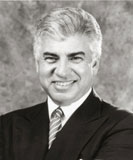A Quote by Geoff Dyer
Writers are not obliged to deal with current events, but it happens that the big story of our times - the al-Qaida attacks on New York and the Pentagon, and the subsequent wars in Iraq and Afghanistan - is being told in some of the greatest books of our time.
Related Quotes
Johnny Apple, a New York Times correspondent, wrote a front-page story saying Afghanistan could be a quagmire and he was mocked and derided. What is certainly true is that all sorts of resources that would have been used in Afghanistan were diverted to Iraq. Would those resources have helped? Almost undoubtedly. Whether or not Afghanistan would be a peaceful nation-state had we not gone into Iraq I doubt. Afghanistan is going to be Afghanistan, no matter how hard we try to make it something else.
We know definitively that Al-Qaida isn't all over Afghanistan anymore. According to CIA estimates, there are less than a hundred Al-Qaida members in the entire country. Most of them are in Pakistan. So, it's hard for me to understand why we're still fighting there and sending in more and more troops. I would get out of Afghanistan as quickly as possible.
When the United States invaded Iraq, a New York Times/CBS News survey estimated that 42 percent of the American public believed that Saddam Hussein was directly responsible for the September 11 attacks on the World Trade Center and the Pentagon. And an ABC news poll said that 55 percent of Americans believed that Saddam Hussein directly supported al-Qaeda. None of this opinion is based on evidence (because there isn’t any).
Four years ago, I promised to end the war in Iraq. We did. I promised to refocus on the terrorists who actually attacked us on 9/11. We have. We've blunted the Taliban's momentum in Afghanistan, and in 2014, our longest war will be over. A new tower rises above the New York skyline, al Qaeda is on the path to defeat, and Osama bin Laden is dead.
We have learned that terrorist attacks are not caused by the use of strength; they are invited by the perception of weakness. And the surest way to avoid attacks on our own people is to engage the enemy where he lives and plans. We are fighting that enemy in Iraq and Afghanistan today so that we do not meet him again on our own streets, in our own cities.
nothing happens in August - except when something really happens in August. World War I began in August, Saddam Hussein's invasion of Kuwait began in August, al Qaida was preparing to bring down the World Trade Center in August. August, in other words, is the time when all of us should prepare our backup plans, chart our reversals of course, [and] think through possible paradigm changes.





































